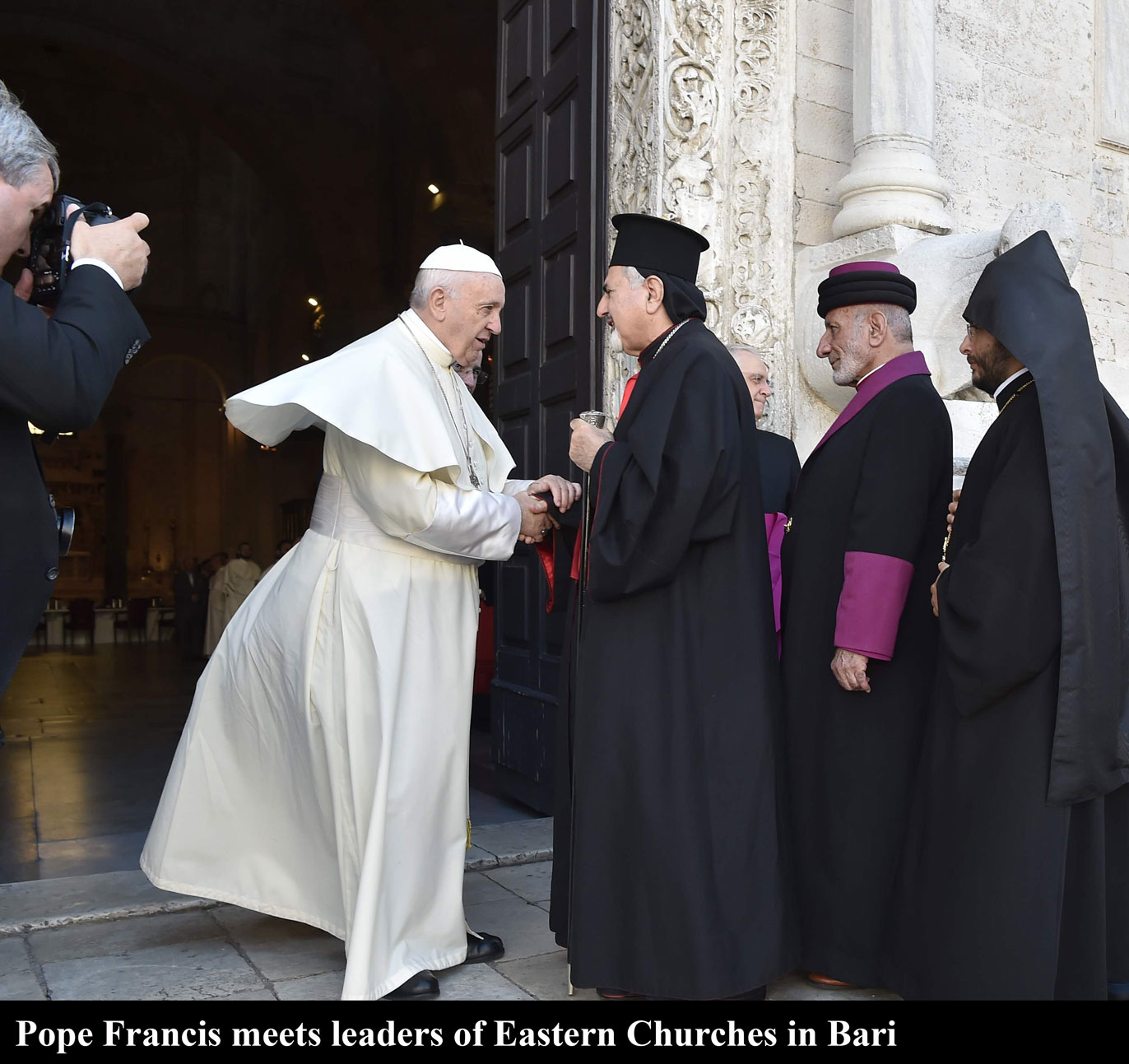Highlights of Pope’s ecumenical visit to Bari
On Saturday 7 July, Pope Francis hosted an ecumenical prayer meeting with representatives of the Christian churches in the Middle East, in the southern Italian city of Bari. “Peace be upon you! Christians together for the Middle East” was the motto of the meeting.
The choice of location is significant. Bari, which is in the southern Italian region of Puglia, is known as the “Gateway to the East” because of its connection to both the Catholic and Orthodox Churches. It is indeed an ecumenical city as the remains of St Nicholas, venerated both by Catholics and Orthodox, are held there.
The aim of this event, convened by the Pope, was for Christian leaders to come together to pray for a region where the Christian population is continually diminishing, owing to ongoing conflicts and persecution. During his Introductory Address, Pope Francis warned: ‘There is also the danger that the presence of our brothers and sisters in the faith will disappear, disfiguring the very face of the region’
The ecumenical day was divided into two events: a public prayer that included singing in Arabic and Aramaic, and a private meeting among the church leaders and patriarchs. The discussion, which took place behind closed doors, was opened by Archbishop Pierbattista Pizzaballa, apostolic administrator of the Latin Patriarchate of Jerusalem.
Argentine Cardinal Leonardo Sandri, who heads the Vatican’s Congregation for Oriental Churches, said the day of prayer came about as the result of requests from several patriarchs and heads of Churches in the Middle East. The ecumenical gathering demonstrated the Pope’s attention to the Eastern Catholic community in the Middle East and the well-being of Orthodox Churches in the region, and his relationship with heads of Orthodox Churches, as well as his concern for the Muslim community and for regional minorities. “[Francis] has always had gestures of friendship, welcoming, openness, of bringing walls down with the Oriental and Orthodox patriarchs,” said Sandri. He added that the event was “an appeal to prayer,” but also an appeal for unity in prayer, which is the only thing that “can change hearts.”
Religious leaders attending
Religious leaders who attended included leaders of Eastern Catholic Churches and Orthodox Churches, the Assyrian Church of the East, as well as ecclesial communities.
The majority of the 19 leaders present were patriarchs or heads of churches. Only five sent a representative, including the Russian Orthodox Church and the Catholic Melkite Patriarchate of Antioch. Eastern Catholic Churches present included the Coptic Catholic Church, the Melkite Greek Catholic Church, the Chaldean Catholic Church, the Maronite Catholic Church, the Syriac Catholic Church and the Armenian Catholic Church. Eastern Orthodox representatives were Ecumenical Patriarch Bartholomew I of Constantinople and Metropolitan Hilarion of Volokolamsk, who attended on behalf of Russian Orthodox Patriarch Kirill. From the Oriental Orthodox Churches, there were Tawadros II, Coptic Orthodox Pope of Alexandria, as well as representatives of the Armenian Apostolic Church and the Syriac Orthodox Church. Representatives from the Evangelical Lutheran Church in Jordan and the Holy Land and from the Middle East Council of Churches also attended.





